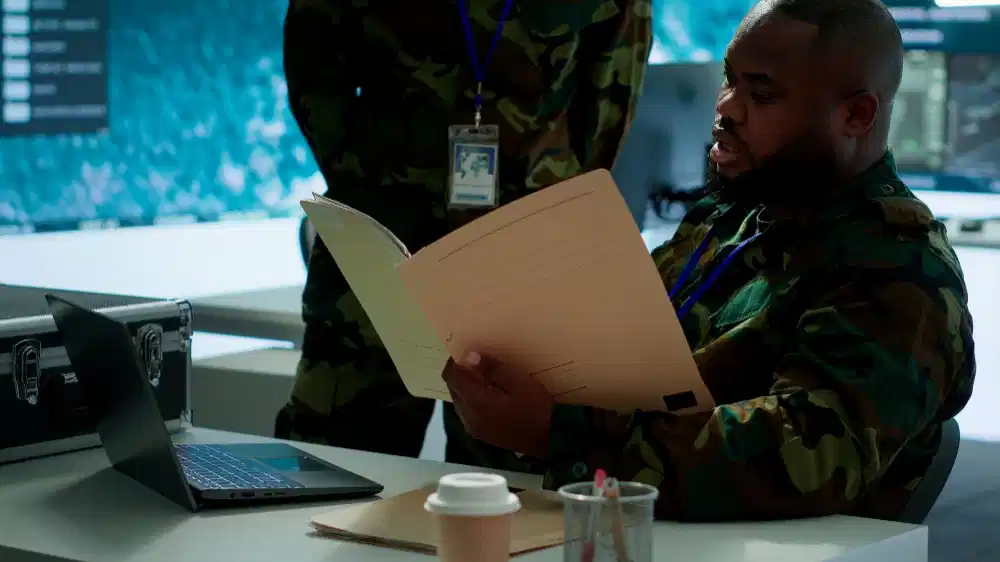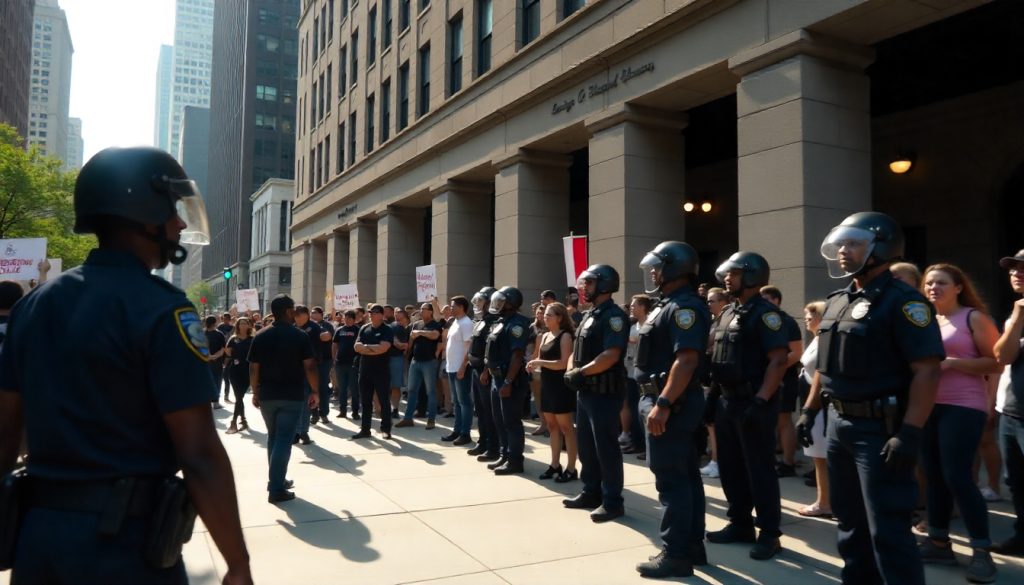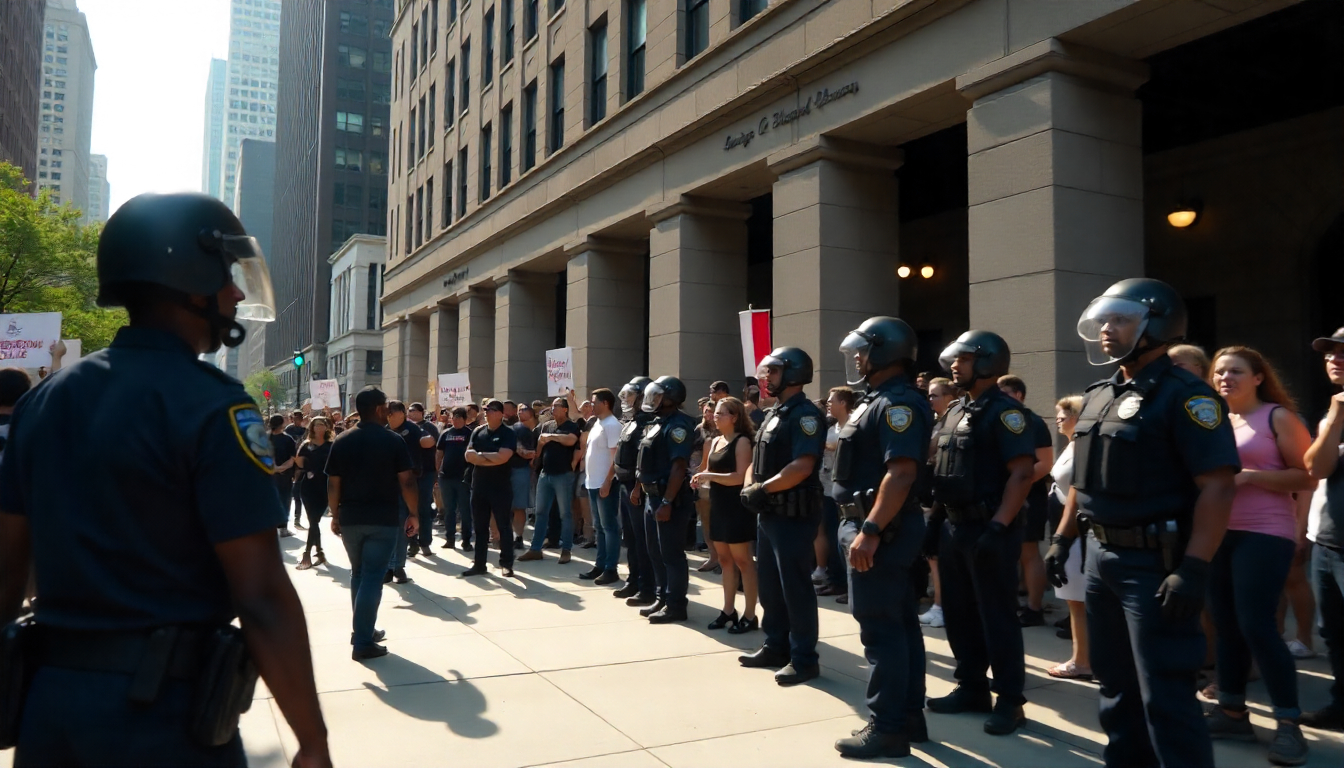Governor Pritzker’s Fiery Rebuttal to Trump’s Chicago Plans
Illinois Governor J.B. Pritzker launched a forceful and public denouncement of former President Donald Trump’s stated intention to deploy federal troops to Chicago. Standing alongside Mayor Brandon Johnson, a coalition of bipartisan pastors, and community leaders, Pritzker framed the proposal not as a solution, but as a dangerous political stunt. The press conference, charged with defiance, served as a direct response to Trump’s comments, setting the stage for a significant political and constitutional clash over local autonomy and federal overreach. The governor’s message was clear: Chicago will not be used as a political prop in a national campaign.
Chicago Plans –The Core of the Controversy: Unpacking Trump’s Proposal
During a recent speech, Trump reiterated his claims that American cities are overrun by crime, specifically calling Chicago “a mess” and promising to “straighten that one out.” He suggested he would be willing to send military assets to city streets, drawing a parallel to actions taken in Los Angeles and Washington, D.C. This concept, while vague, hinges on the potential use of federal powers to override local and state authority. For Chicago’s leadership, this represents a fundamental threat to the principle of local governance and a drastic mischaracterization of the city’s current reality. The very idea has been met with unified resistance from the city’s top officials.
“The City is Not a War Ground”: Pritzker’s Powerful Dismissal
Governor Pritzker’s rejection of Trump’s Chicago plans was both visceral and logical. He stood before the cameras and challenged the very premise of an emergency. “Look around you,” he urged, gesturing to the calm city behind him. “The city is not a war ground. Does this look like an emergency?” This rhetorical question cut to the heart of the dispute, arguing that the justification for such an extreme measure is completely absent. Pritzker labeled the potential invocation of military force an “extraordinary act that requires some extraordinary justification,” implying that no such justification exists. His tone conveyed not just disagreement, but outright incredulity at the proposal.

Chicago Plans – A Political Counterpunch: The Republican Crime Statistic
In a shrewd political maneuver, Governor Pritzker shifted the national conversation on crime statistics back onto Trump and his supporters. He pointed out a compelling and often overlooked fact: “Eight out of the ten states with the highest homicide rates are led by Republicans.” This statement serves as a powerful rebuttal, challenging the narrative that crime is solely a problem in Democratic-led urban centers. By broadening the scope to state-level leadership, Pritzker reframed the issue, suggesting that the solutions are far more complex than political soundbites imply and that the blame game is disingenuous when data reveals a broader, more complicated picture.
Chicago Plans –The White House’s Retort and the Political Divide
The response from the Trump camp was swift and dismissive. Abigail Jackson, a White House press contact, fired back via email, employing a classic political counter-narrative. “If these Democrats devoted half the attention to addressing crime in their cities as they do to whining about President Trump on cable news, their citizens would be much better off,” she stated. This exchange perfectly encapsulates the deep national divide on the issue. One side sees federal intervention as a necessary step to restore order, while the other perceives it as an authoritarian overreach that ignores data and local progress. The conversation, it seems, is talking past itself, with both sides operating from entirely different sets of facts and principles.
Legal Avenues and Constitutional Hurdles
The feasibility of Trump’s Chicago plans is mired in complex legal and constitutional questions. Typically, the deployment of National Guard troops within a state is at the request of the state’s governor, a authority that Governor Pritzker has clearly stated he will not exercise. To bypass this, Trump could potentially invoke the Insurrection Act, a centuries-old law that allows a president to deploy the military domestically to suppress civil unrest, insurrection, or rebellion. However, legal experts agree that the current conditions in Chicago—which is not experiencing widespread civil disorder—would make such an invocation highly controversial and immediately challenged in court. The city’s current state of peace presents a nearly insurmountable legal barrier to using this act credibly.
Chicago’s Data-Driven Defense Against Militarization
Mayor Brandon Johnson’s defense against the proposed Chicago plans was rooted in empirical data. He proudly noted that Chicago does not rank among the top 25 most dangerous cities in the nation, a fact often lost in national rhetoric. More importantly, he highlighted the city’s significant progress: a 50% drop in homicides over the past two years and decreases in crime rates across all major categories. This data-driven argument is central to the city’s case. It portrays Trump’s plans as a solution in search of a problem—a drastic, militarized response that is utterly disproportionate to the reality on the ground and utterly blind to the progress already being made by local efforts and community policing strategies.
A City United Against External Targeting
Beyond the legal and statistical arguments, a strong sense of political targeting permeated the officials’ responses. Mayor Johnson explicitly stated, “We’re being targeted for what we stand for,” pointing to the city’s renowned racial diversity and its left-leaning political identity. This sentiment frames Trump’s Chicago plans not as a genuine policy proposal but as a punitive measure against a political adversary. The rare joint appearance of the governor, mayor, and community leaders projected a powerful image of unity. Their collective alarm and resolve signal that any attempt to force federal troops onto Chicago’s streets will be met with fierce, coordinated, and unwavering resistance from every level of local leadership.

Table of Contents
Reference Website:
https://www.nytimes.com/2025/08/25/us/politics/pritzker-chicago-trump-national-guard.html
